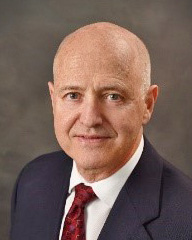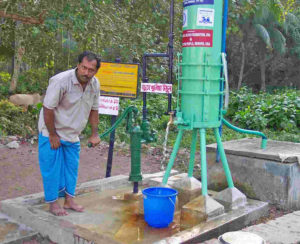 Most of my professional career at CH2M involved drinking water projects. You may recall that Water For People (WFP) was established in 1991 by the American Water Works Association when CH2M’s Ken Miller helped found the organization and served as the first president, so I was attracted to this organization’s work early on. CH2M corporately supported WFP for many years and encouraged our offices to hold annual awareness and fund-raising campaigns. As a result, I became aware of, from a global perspective, the lack of safe drinking water in many developing countries due to poor quality sources or the entire absence of sources where the communities were located. WFP’s values and priorities not only emphasized supplying safe drinking water with local buy-in and ownership (in a sustainable way) to promote good health and save lives, but also to allow women to become employed rather than spend their time hauling water, and to keep children healthy so they did not miss school. In other words, safe water in a community is an economic driver for the community.
Most of my professional career at CH2M involved drinking water projects. You may recall that Water For People (WFP) was established in 1991 by the American Water Works Association when CH2M’s Ken Miller helped found the organization and served as the first president, so I was attracted to this organization’s work early on. CH2M corporately supported WFP for many years and encouraged our offices to hold annual awareness and fund-raising campaigns. As a result, I became aware of, from a global perspective, the lack of safe drinking water in many developing countries due to poor quality sources or the entire absence of sources where the communities were located. WFP’s values and priorities not only emphasized supplying safe drinking water with local buy-in and ownership (in a sustainable way) to promote good health and save lives, but also to allow women to become employed rather than spend their time hauling water, and to keep children healthy so they did not miss school. In other words, safe water in a community is an economic driver for the community.

The man is operating a hand pump for a well that has been connected to a treatment device funded by WFP. The device removes naturally occurring arsenic from groundwater, which was causing severe health problems in many villages in the Ganges River basin of India.
In 2003, I had the opportunity to join a small group of other WFP supporters and travel to India to visit several WFP projects over a few days. I heard firsthand from villagers the many benefits that water projects provided to their communities. After that experience, I was sold on the need for safe drinking water as a first priority goal for any developing community.
I took early retirement from CH2M in 2014 at 62 years of age. I admit, I was nervous about that, not knowing what the next steps would be. In 2015, I began working part time for a forensic consulting firm. I fully retired in 2018, and was nervous again, not knowing how to occupy my time in between occasional tourist excursions with my wife, Pam. (I never learned how to play golf.) So, I began checking on opportunities to volunteer in Louisville, Ky, where we live.
One opportunity for volunteer work was obvious – the WaterStep organization, a nonprofit headquartered in Louisville, Kentucky. It helps other organizations and regions, globally, gain access to sanitation and safe drinking water. The organization provides mobile disinfectant equipment for water treatment and cleaning and works to develop and implement sustainable water solutions to improve the lives of hundreds of thousands in more than 58 countries, including Haiti, Kenya, Pakistan, and the Dominican Republic among many more. In addition, WaterStep has provided mobile disinfectant equipment to disaster areas in the U.S.
I work with a team of local volunteers, usually one day a week, at the WaterStep warehouse in Louisville to manufacture chlorine generators and BleachMakers in a well-equipped shop. This equipment uses a 12-volt power supply and salt water in a reactor to create an electrolytic chemical reaction that forms either chlorine gas or bleach. After manufacturing, volunteers test each device for leakage and proper operation, then pack the equipment with accessories in boxes for shipment to areas of need.
From 2006 to the present, over 1,300 M-100 Chlorine Generators and 1,400 BleachMakers have been manufactured. During this time, more than 4,300,000 people in 58 countries in Africa, Asia, and the Americas have been served by products manufactured by or furnished through WaterStep. In August (2021), WaterStep and UPS partnered to send a large shipment of safe water equipment to east Africa. WaterStep ambassadors stationed in Kenya, Uganda, and Tanzania will announce some of the first communities that will be impacted by the equipment, one being the story of bringing safe water to Lake Victoria called “Victoria’s Hope.” The 630 pieces of equipment, including 130 WaterBalls, 150 M-100 chlorine generators, 250 4-liter BleachMakers, 100 20-liter BleachMakers, and various hand pump repair tools, was the largest one-time deployment in WaterStep’s history; and it will impact approximately 1.7 million people in the region. See WaterStep for more information.
